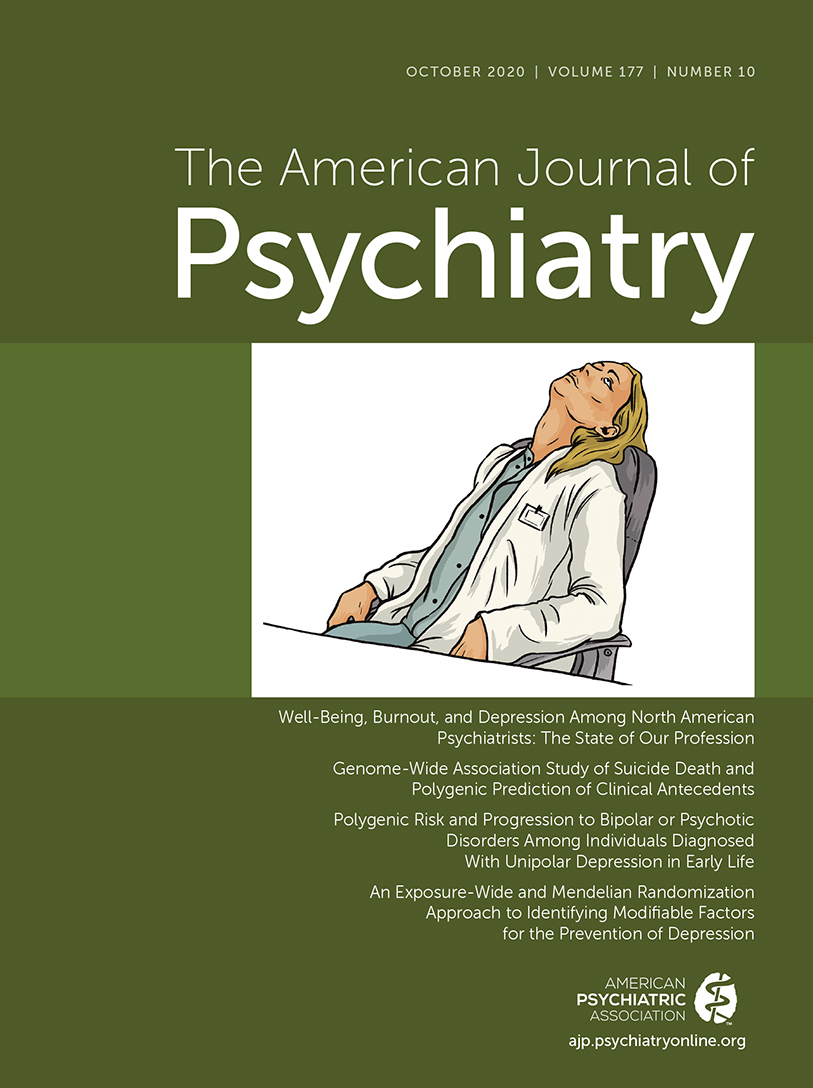Highlights From Residents’ Journal: September 2020
The Residents’ Journal is a quarterly e-publication that serves as a forum for resident physicians and fellows to share ideas and experiences in training, clinical practice, research, and careers.
Involuntary Hospitalization During the COVID-19 Pandemic
Nathaniel P. Morris, M.D., and Robert A. Kleinman, M.D.
Civil commitment statutes authorize involuntary psychiatric hospitalization in many countries; however, a pandemic disrupts the balance of ethical principles for involuntary hospitalization. Some patients will continue to require and to benefit from involuntary psychiatric care during a pandemic, but involuntary hospitalization also brings unique risks of infectious disease transmission that warrant consideration. In addition, changes to inpatient policies geared toward mitigating transmission risks may shape the effectiveness of involuntary care. Using a framework of four ethical principles, this article examines the shifting ethics of involuntary psychiatric hospitalization during the COVID-19 pandemic and offers suggestions for clinicians navigating these ethical dilemmas.
Delirium and Pregabalin Use
Apurva Bhatt, M.D.
Pregabalin has been prescribed during the past decade for diabetic peripheral neuropathy, and some psychiatrists use it off-label to treat anxiety. The most common side effects include dizziness and somnolence, which can often lead to discontinuation of the medication. Symptoms of delirium associated with pregabalin, specifically with prominent visual hallucinations, have not been well-described in the literature. This case report presents a patient who, after appropriate up-titration of pregabalin in an inpatient hospital setting, experienced delirium with prominent visual hallucinations which resolved after prompt discontinuation of pregabalin.
Major Neurocognitive Disorders and the 50 Shades of Capacity
Michael Chung, Rida Malick, M.D., and Corina Freitas, M.D., M.Sc., M.B.A.
Capacity refers to a patient’s ability to make a medical decision and is rooted in both ethical principles and personal rights. Every recommendation made by a physician in a clinical encounter is based upon a foundation that is carefully informed by autonomy and beneficence. There is an implicit assumption that the patient is cognizant of a situation and in agreement with the physician. However, there is a need to be wary of this almost automated assumption.
Also in this Issue
Continuity, Change and Tradition
Matthew Edwards, M.D.
A Brief History of Electroconvulsive Therapy
Raheem Suleman, M.D.
Learning to Do Therapy in 2020
Priya Gearin, M.D.
Revisiting Narrative Medicine’s Place in Psychiatry
Colin Wendt, M.D.



